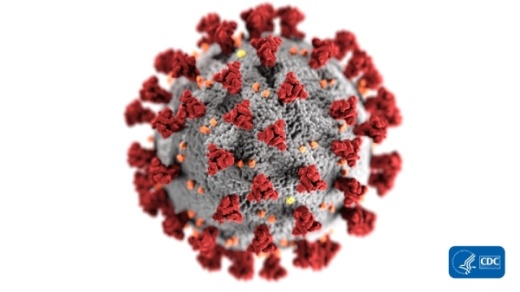The city’s five-phase plan outlines guidelines for the Austin Public Health Epidemiology and Public Health Preparedness Division for preparation ahead of any cases of COVID-19, the disease caused by the new coronavirus that has been spreading recent months. The plan further details policies to handle suspected and confirmed cases of coronavirus and how to handle cases spread from person to person in the community.
“This is not the first epidemic [APH] has faced,” said Matt Lara, public information specialist for the city of Austin’s Homeland Security and Emergency Department. “They’re constantly working on these policies ... to make sure when something like this does happen, everyone is prepared.”
APH has worked in coordination with the U.S. Centers for Disease Control and Prevention and the Texas Department of State Health Services to construct its coronavirus plan since January, according to Feb. 28 agency news release.
“We have a very good relationship with [DSHS]. They are giving us constant updates,” Lara said.
The city’s Feb. 28 news release states APH is currently in Phase 1 of its coronavirus plan. APH officials are receiving flight manifests of travelers who may have been to China in the past two weeks, according to the news release.
“That number is getting much smaller as people are coming back from China,” Lara said.
Officials are monitoring those individuals who have come in from China and are providing each of those individuals with control orders that restrict their movements in the community and interaction with other individuals. The city states in its news release that it is staying in daily contact with those under monitoring.
Phase 2 of the plan is initiated if one of the travelers undergoes testing for coronavirus, and Phase 3 is activated if a monitored individual tests positive for the virus.
“That would ramp up operations a little bit,” Lara said. “There is an operational plan in place for if someone even shows symptoms [of coronavirus.]”
SXSW marches on
Preventative measures for battling coronavirus in Austin come as SXSW expects to draw thousands of international visitors to the city in March.
According to its annual reports, 26% of all SXSW attendees in 2019 came from countries outside of the U.S. More than 230,000 people attended SXSW festival programming last year, the report shows.
China, where the global coronavirus outbreak originated, and South Korea, where the World Health Organization has confirmed more than 2,300 cases of the virus, were both within the top 20 of countries that sent attendees to SXSW last year, according to the annual reports.
Attendees came from 106 nations across the world last year, more than half the total number of countries in the world.
SXSW on Feb. 28 announced on its website the festival will proceed as planned.
“Safety is a top priority for SXSW, and we work closely with local, state, and federal agencies year-round to plan for a safe event. We are increasing our efforts to prevent the spread of disease per Austin Public Health’s recommendations. We will continue to monitor the situation closely and will provide updates as necessary,” a SXSW spokesperson told Community Impact Newspaper in an email.
Festival organizers are in daily contact with city health officials ahead of the event, Lara said.
The WHO estimates the coronavirus has an incubation period, or the time between catching the virus and beginning to have symptoms of the disease, of one to 14 days. SXSW programming is scheduled to run March 13-22, meaning an individual could catch coronavirus and begin showing symptoms during the festival.
“APH has an epidemiology response plan which has decades of experience evaluating and investigating disease outbreak. These experts perform a thorough investigation and will assess risk to people who will be exposed and provide recommendations,” said Jen Samp, APH public information officer, in an email to Community Impact Newspaper.
State efforts
On Feb. 28, county judges from the six largest counties in Texas—Bexar, El Paso, Travis, Dallas, Harris and Tarrant—all signed a letter outlining state and regional efforts to prevent an outbreak of coronavirus.
“We want to reassure the public that their county governments are working closely with the local municipalities and other community stakeholders within our geographical boundaries and regions to prevent the spread of respiratory viruses such as the flu and COVID-19. As the providers of public health throughout our counties, our local health officials are closely monitoring the evolving situation. We are coordinating with the DSDS, CDC and local and regional public health and healthcare agencies,” the letter read.
Samp said the DSHS is providing laboratory assistance and assisting in planning and preparation alongside health departments across Texas. Lara added that daily phone calls are held by the DSHS to update public health departments about the coronavirus.
The first case of coronavirus in Texas was confirmed Feb. 13 by the CDC. There are currently 59 confirmed cases of coronavirus in the U.S., according to the WHO. The majority of those cases came from citizens who were on a British-registered cruise ship with other individuals infected with the virus.
Currently, APH is asking the public to follow similar rules to prevent the spread of the flu in order to get ahead of any coronavirus outbreaks.
“If you are ill, stay home. Wash your hands frequently. Have a bottle of an alcohol-based hand sanitizer in your car and use it. Stay away from persons who are coughing and sneezing. Avoid touching your eyes, nose, and mouth with unwashed hands,” Samp wrote in an email.
Further, Samp advises Austin residents that may be hosting international travelers at their house for SXSW to perform routine cleaning before and after the guests arrive, and to provide a container of disinfectant wipes for visitors.
APH has further guidelines for preventing the spread of the virus on its website.





